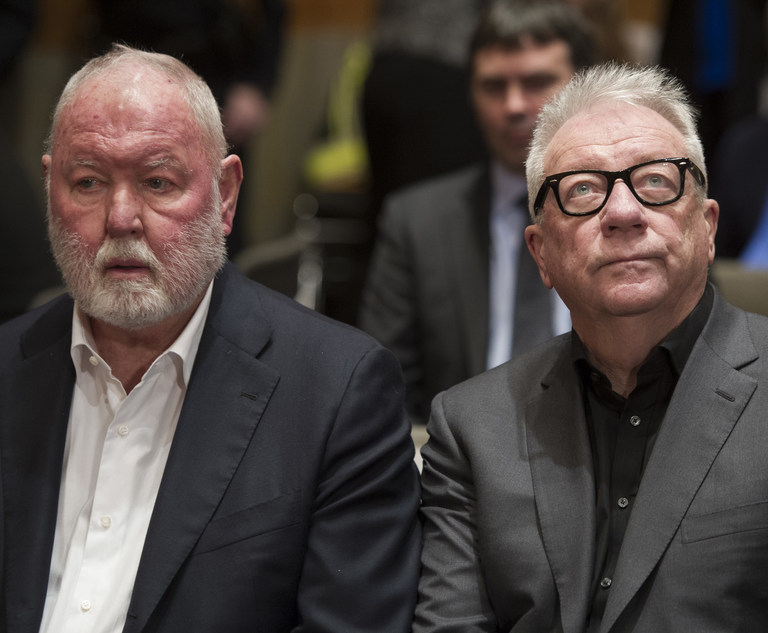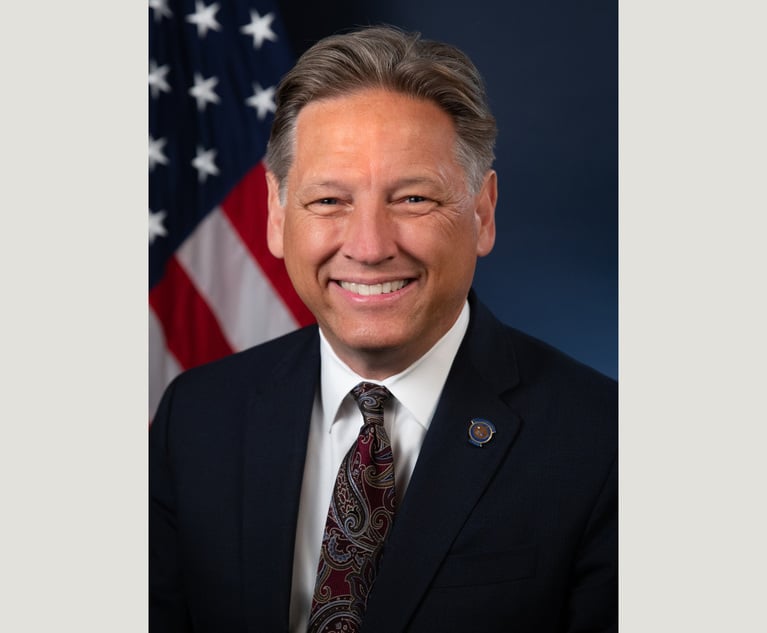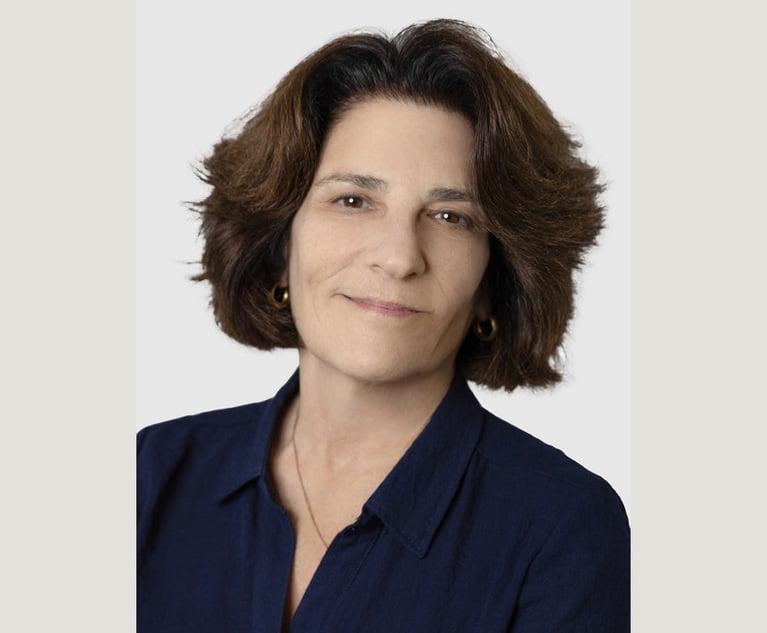Mistrial in Backpage Founders' Criminal Case Followed Several Rejected Requests
A mistrial in the federal prostitution and money laundering case against the co-founders of Backpage highlights the challenges of bringing cases against tech executives for individual conduct that's also related to a broader company effort, such as a popular website or subscription-based service.
September 29, 2021 at 09:29 PM
6 minute read
 FILE – In this Jan. 10, 2017, file photo, former Backpage.com owners, James Larkin, left, and Michael Lacey wait on Capitol Hill in Washington to appear before a Senate hearing. Photo: Cliff Owen/AP, File
FILE – In this Jan. 10, 2017, file photo, former Backpage.com owners, James Larkin, left, and Michael Lacey wait on Capitol Hill in Washington to appear before a Senate hearing. Photo: Cliff Owen/AP, File
This article was originally featured in Meghann Cuniff's What's Next briefing. Click here to learn more or subscribe.
A criminal trial in Arizona that's part of a government crackdown on internet sex trafficking recently ended in a mistrial. The details highlight the challenges of bringing cases against tech executives for individual conduct that's also related to a broader company effort, such as a popular website or subscription-based service.
In this case, a federal grand jury indicted six former Backpage.com operators—Michael Lacey, James Larkin, Scott Spear, John Brunst, Andrew Padilla and Joye Vaught—on facilitating prostitution charges. Some also are charged with money laundering. All went to trial starting Sept. 1 in U.S. District Judge Susan M. Brnovich's courtroom in Phoenix, but Brnovich granted a mistrial request from the defense on Sept. 14.
The judge had previously set ground rules for the trial when denying a bid to recuse her from the case based on statements against human trafficking made by her husband, who is Arizona Attorney General Mark Brnovich. When declining to recuse herself, the judge said one of her key reasons for doing so "is that this case is not about Backpage."
This content has been archived. It is available through our partners, LexisNexis® and Bloomberg Law.
To view this content, please continue to their sites.
Not a Lexis Subscriber?
Subscribe Now
Not a Bloomberg Law Subscriber?
Subscribe Now
NOT FOR REPRINT
© 2025 ALM Global, LLC, All Rights Reserved. Request academic re-use from www.copyright.com. All other uses, submit a request to [email protected]. For more information visit Asset & Logo Licensing.
You Might Like
View All
Invoking Trump, AG Bonta Reminds Lawyers of Duties to Noncitizens in Plea Dealing
4 minute read
California Supreme Court Vacates Murder Conviction in Infant Abuse Case
5 minute readLaw Firms Mentioned
Trending Stories
- 15th Circuit Considers Challenge to Louisiana's Ten Commandments Law
- 2Crocs Accused of Padding Revenue With Channel-Stuffing HEYDUDE Shoes
- 3E-discovery Practitioners Are Racing to Adapt to Social Media’s Evolving Landscape
- 4The Law Firm Disrupted: For Office Policies, Big Law Has Its Ear to the Market, Not to Trump
- 5FTC Finalizes Child Online Privacy Rule Updates, But Ferguson Eyes Further Changes
Who Got The Work
J. Brugh Lower of Gibbons has entered an appearance for industrial equipment supplier Devco Corporation in a pending trademark infringement lawsuit. The suit, accusing the defendant of selling knock-off Graco products, was filed Dec. 18 in New Jersey District Court by Rivkin Radler on behalf of Graco Inc. and Graco Minnesota. The case, assigned to U.S. District Judge Zahid N. Quraishi, is 3:24-cv-11294, Graco Inc. et al v. Devco Corporation.
Who Got The Work
Rebecca Maller-Stein and Kent A. Yalowitz of Arnold & Porter Kaye Scholer have entered their appearances for Hanaco Venture Capital and its executives, Lior Prosor and David Frankel, in a pending securities lawsuit. The action, filed on Dec. 24 in New York Southern District Court by Zell, Aron & Co. on behalf of Goldeneye Advisors, accuses the defendants of negligently and fraudulently managing the plaintiff's $1 million investment. The case, assigned to U.S. District Judge Vernon S. Broderick, is 1:24-cv-09918, Goldeneye Advisors, LLC v. Hanaco Venture Capital, Ltd. et al.
Who Got The Work
Attorneys from A&O Shearman has stepped in as defense counsel for Toronto-Dominion Bank and other defendants in a pending securities class action. The suit, filed Dec. 11 in New York Southern District Court by Bleichmar Fonti & Auld, accuses the defendants of concealing the bank's 'pervasive' deficiencies in regards to its compliance with the Bank Secrecy Act and the quality of its anti-money laundering controls. The case, assigned to U.S. District Judge Arun Subramanian, is 1:24-cv-09445, Gonzalez v. The Toronto-Dominion Bank et al.
Who Got The Work
Crown Castle International, a Pennsylvania company providing shared communications infrastructure, has turned to Luke D. Wolf of Gordon Rees Scully Mansukhani to fend off a pending breach-of-contract lawsuit. The court action, filed Nov. 25 in Michigan Eastern District Court by Hooper Hathaway PC on behalf of The Town Residences LLC, accuses Crown Castle of failing to transfer approximately $30,000 in utility payments from T-Mobile in breach of a roof-top lease and assignment agreement. The case, assigned to U.S. District Judge Susan K. Declercq, is 2:24-cv-13131, The Town Residences LLC v. T-Mobile US, Inc. et al.
Who Got The Work
Wilfred P. Coronato and Daniel M. Schwartz of McCarter & English have stepped in as defense counsel to Electrolux Home Products Inc. in a pending product liability lawsuit. The court action, filed Nov. 26 in New York Eastern District Court by Poulos Lopiccolo PC and Nagel Rice LLP on behalf of David Stern, alleges that the defendant's refrigerators’ drawers and shelving repeatedly break and fall apart within months after purchase. The case, assigned to U.S. District Judge Joan M. Azrack, is 2:24-cv-08204, Stern v. Electrolux Home Products, Inc.
Featured Firms
Law Offices of Gary Martin Hays & Associates, P.C.
(470) 294-1674
Law Offices of Mark E. Salomone
(857) 444-6468
Smith & Hassler
(713) 739-1250








